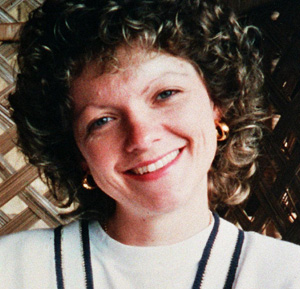Man guilty in second trial of 1995 murder
The first person to face a second murder trial following the discovery of new evidence is found guilty of killing mother-of-two Vikki Thompson in 1995.

Mark Weston, 35, was originally cleared of battering Vikki Thompson near her home in the Cotswold village of Ascott-under-Wychwood, Oxfordshire in 1995.
But after the so-called “double jeopardy” rule was removed in 2005, Weston was found guilty in a second trial at Reading Crown Court today after new DNA evidence was put forward.
The jury of seven men and five women had taken just under four hours to reach their decision. Weston was jailed for life with a minimum term of 13 years at Reading Crown Court.
Mrs Thompson, 30, was found bludgeoned near a railway line after her dog returned home alone from a country walk. She died in hospital six days after the savage attack.
Small amounts of Mrs Thompson’s blood, missed during the initial investigation, were discovered on a pair of Weston’s boots when Thames Valley Police reopened the case.
Detectives believe Weston chased the mother-of-two as she was walking her dog on August 12, 1995 because she caught him watching her and masturbating. Police found a plastic bag near the scene containing two bras stained with semen matching the DNA profile of Weston.
Retrial
Forensic scientists said it had been deposited within days of the bras being seized on August 14. The evidence was not allowed by the judge in the first trial, but it was put before the jury this time.
This is the first time using double jeopardy legislation that new forensic evidence has been used to secure a conviction, so it’s very significant. Retired detective Pete Beirne
There were gasps and sobs from the public gallery as the jury returned their unanimous guilty verdict. Weston, dressed in a white shirt and blue and black tie, showed no emotion as the verdict was returned.
In 2005, on the tenth anniversary of the murder, Thames Valley Police reopened the case and evidence was submitted for further examination. Weston was arrested again at his home in Ascott-under-Wychwood on October 21 last year.
Weston was initially found not guilty after just 50 minutes of deliberation at Oxford Crown Court in 1996. The foreman of the jury wrote to Weston after the trial wishing him luck and urged him to pursue the police for compensation.
Murder
Vikki Thompson, who lived with her husband and two young children, went for a walk with the family dog Daisy on 4pm on the day of her murder.
Later a farmer and three local residents heard screams, lasting up to 45 seconds and coming from near where Mrs Thompson’s body was found.
Mrs Thompson’s husband, Jonathan, and neighbours went looking for his wife after the dog returned home alone.
A local couple eventually found Mrs Thompson, still alive, at about 7.15pm. Prosecutor John Price QC told the jury that she was found lying on a collection of rocks on a railway embankment.
“There was a lot of blood. She moved, and in the minutes that followed, her husband having arrived at the scene and before Mrs Thompson could be taken away by air ambulance, she was able to speak, though not in any coherent fashion,” he said.
“She was not able to say what had happened to her, nor was she able to say who was responsible.”
Significant verdict
She was taken to the John Radcliffe Hospital in Oxford suffering skull fractures and a severe brain injury. Six days later her brain stopped functioning and her life support machine was switched off.
She had received three heavy blows to the back of the head and two to her face.
Mr Price said evidence gathered at the post-mortem examination and at the scene of the crime suggested that after the initial attack, Weston lifted her over a fence and dragged her across a field by her arms before dumping her.
Detectives think she may have been moved to make it appear she had been struck by a passing train.
Pete Beirne, a retired detective recruited by police to investigate unsolved crimes, said after the trial: “This is the first time using double jeopardy legislation that new forensic evidence has been used to secure a conviction, so it’s very significant.”